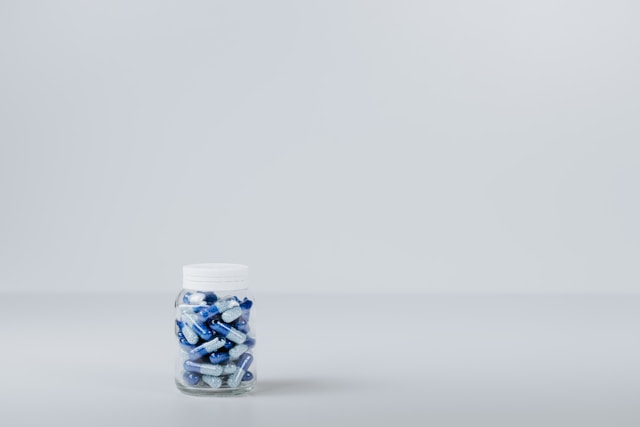About a year ago, when we went for a resupply of my Dad’s medications, we were shocked at the sudden price rise.
The increase was astronomical. Almost overnight, the prices of most medications increased by 50% and even 100% (and more).
Month after month, we discovered there were always small increments in the prices of most of the medications prescribed for him.
I wondered, what about average Nigerians who couldn’t afford to keep up with the steep rise in the price of essential medications, such as anti-hypertensives, antibiotics, and over-the-counter painkillers like paracetamol? How are they coping? And what’s being done about it?
For some time, we didn’t see any solid move from the government to offer any help until recently, when the government signed a new executive order that may bring in some transformation in Nigeria’s pharmaceutical industry.
A Commendable Effort From The Government
President Bola Ahmed Tinubu’s government recently signed an executive order to revolutionise the pharmaceutical sub-ecosystem of Nigeria’s healthcare industry.
This order introduces zero tariffs, excise duties, and value-added tax (VAT) on specified machinery, equipment, and raw materials imported for pharmaceutical production, promising a brighter future for healthcare in Nigeria.
The strategy is not just about reducing prices but also about empowering our local industries. It aims to increase local production of healthcare products, mainly pharmaceuticals, diagnostics, devices, and consumables, such as needles, syringes, gloves, etc.
This shift towards local production is crucial in improving Nigeria’s healthcare system.
The healthcare ecosystem in Nigeria was hit hard when multinational healthcare companies recently decided to shut down production due to the country’s harsh economic conditions.
Nigeria has recently faced a mass exodus of multinational companies. Not just in healthcare, but other industries are also suffering.
A few weeks ago, Microsoft shut down its operations in the country, leaving hundreds of young people stranded in the job market. Prior companies like P&G, Jumia Foods, Bolt Foods, and Unilever have closed their shops in Nigeria.
Two major global healthcare companies have left Nigeria recently:
- GSK Plc is Nigeria’s second-largest drug producer and a British pharmaceutical giant. After doing business in Nigeria for 51 years, GSK announced that its prescription medicines and vaccines would be sold in the country through third-party distributors, which has caused the price of major essential medications to skyrocket, leaving many average Nigerians who depend on these drugs to suffer.
- Sanofi-Aventi Nigeria is a French pharmaceutical multinational that has also left Nigeria and has adopted a third-party distributor strategy to sell its products in Nigeria.
The major challenges are the foreign exchange crisis, increased competition (mainly from India and China), massive inflation, multiple taxation, economic policies, and importation bureaucracy.
The government’s recent move to introduce zero tariffs, excise duties, and VAT on specified pharmaceutical products is a welcome strategy that would ease the pressure the pharmaceutical industry faces in Nigeria.
Strengthening Local Manufacturing

Nigeria can become a global manufacturer of essential products, including pharmaceuticals and medicals.
What stops us from becoming Africa’s largest production hub, like China or India?
If we decide to move many steps forward and focus on local manufacturing, the price of essential products like pharmaceuticals, drugs, medicines, and consumables will be significantly reduced, thereby reducing pressure on average Nigerians who find it difficult to purchase these products, which will result in improved healthcare across the country, as more Nigerians have access to essential medication, both prescriptions and over-the-counter medications.
A statement introducing the order also mandates compulsory collaboration among relevant ministries and agencies, such as the Nigeria Customs Service (NCS), National Agency for Food and Drug Administration and Control (NAFDAC), Standard Organisation of Nigeria (SON), and Federal Inland Revenue Service (FIRS), to reduce regulatory bottlenecks.
According to NAFDAC, 105 applications for the construction and erection of drug manufacturing facilities have been approved nationwide.
Reports confirm that 35 per cent of the approved applications have completed construction, are making progress, and are following NAFDAC’s guidelines for establishing pharmaceutical plants in Nigeria.
More Local Developments You Should Know
- Emzor Pharmaceuticals Industries Limited has officially initiated the commercial production of four antimalarial Active Pharmaceutical Ingredients (APIs) following a successful technical collaboration with NAFDAC and Mangalam Drugs and Organics Limited, a reputable Indian-based WHO prequalified API manufacturers partner.
- The agency announced its plans to provide training to regulatory officers, manufacturers, students, and professors through an upcoming international workshop on Local Manufacturing of Active Pharmaceutical Ingredients and Excipients developed by NAFDAC.
- The National Agency for Food and Drug Administration and Control (NAFDAC) recently disclosed that Swiss Pharma Nigeria Limited, a local manufacturer, achieved prequalification from the World Health Organization (WHO) for its pediatric formulation. This recognition follows a thorough evaluation of the company’s manufacturing and quality control processes.
In 2022, Nigeria’s National Regulatory Agencies (NAFDAC and PCN) achieved a significant milestone, as they were officially recognised by the World Health Organization (WHO) for operating a stable, well-functioning, and integrated regulatory system. They received a maturity level 3 rating on the Global Benchmarking Tool (GBT), signifying their commitment to upholding high regulatory standards.
This is a positive sign that significant efforts are underway to establish a stable and well-regulated environment for manufacturing essential medicines in Nigeria.
The policy is anticipated to introduce market-driven incentives aimed at promoting the development of the healthcare industry, lowering the expenses of medical goods through import substitution, fostering the creation and retention of economic value, and facilitating job growth within the healthcare ecosystem in Nigeria.





